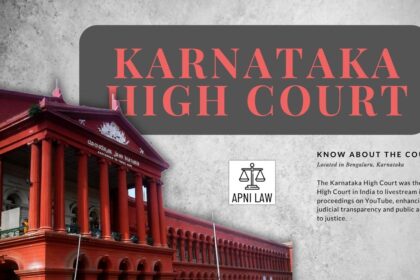How To File A Case Under The Foreign Contribution Regulation Act
The Foreign Contribution Regulation Act (FCRA) was introduced in India to oversee the receipt and use of foreign contributions by individuals and organizations.
First introduced in 1976 during the Emergency, revised in 2010, and amended in 2020.
To ensure foreign donations do not negatively impact India’s sovereignty or integrity.
Organizations must register under FCRA to accept foreign contributions. The registration is valid for five years and requires renewal thereafter
Foreign contributions must be deposited in a designated account with the State Bank of India in Delhi
Contributions can only be used for the purposes specified during the registration process.
Foreign funding is prohibited for political parties, election candidates, judges, and government officials.
Transfers to unregistered entities are limited to 10% of the total foreign contributions received.
Separate accounts must be maintained for foreign contributions, audited annually, and reported to the Ministry of Home Affairs.
NGOs must file annual returns that detail the receipt and use of foreign funds.
Non-compliance can result in the cancellation of registration, fines, or imprisonment for the responsible parties.
What Are The Recent Amendments Under The Foreign Contribution Regulation Act?
Recent amendments to the Foreign Contribution Regulation Act (FCRA) introduce important changes aimed at strengthening regulations and compliance for NGOs and individuals receiving foreign funds:
Individuals can now receive up to ₹10 lakh annually from foreign relatives without prior government notification, up from ₹1 lakh. If this limit is exceeded, they must notify the government within 90 days, instead of 30 days.
Organizations can now allocate only 20% of foreign contributions towards administrative expenses, reduced from 50%.
The time frame for NGOs to apply for registration or prior permission has been extended from 30 to 45 days.
Five additional offences under the FCRA have been made compoundable, allowing for settlements rather than prosecution.
New tables have been added to the FC-4 form for annual returns to improve transparency regarding assets purchased with foreign contributions.
NGOs awaiting FCRA registration renewal can have their validity extended until March 31, 2024.
What Are The Grounds For Filing A Case Under The Foreign Contribution Regulation Act?
Grounds for filing a complaint under the Foreign Contribution Regulation Act (FCRA) include:
Organisations accepting foreign contributions without proper FCRA registration.
Not informing the government when foreign contributions from relatives exceed ₹10 lakh within the required timeframe.
Using foreign contributions for purposes other than those specified during the registration process.
Violating the 20% cap on administrative expenses funded by foreign contributions.
Failing to maintain a designated FCRA bank account for foreign contributions.
Using foreign funds for activities that threaten national security, public interest, or engaging in political activities without proper registration.
Not submitting the required annual returns detailing the receipt and use of foreign funds as mandated by FCRA regulations.
How To File A Case Under The Foreign Contribution Regulation Act?
To file a case under the Foreign Contribution Regulation Act (FCRA), follow these steps:
Ensure your complaint is based on valid reasons, such as non-compliance with registration, misuse of funds, or failure to submit required reports.
Gather all necessary documents, such as proof of non-compliance, correspondence with the organization, and relevant financial records.
Draft a comprehensive complaint that details the violations and cites the specific provisions of the Foreign Contribution (Regulation) Act (FCRA) that have been breached.
File your complaint electronically through the FCRA online portal or directly with the Secretary, Ministry of Home Affairs, Government of India.
If money laundering is suspected, file a complaint with the Enforcement Directorate (ED), or submit a Public Interest Litigation (PIL) if the issue affects public interest.
Keep track of your complaint’s status and provide any additional information requested by the authorities.
For procedures related to revisions or appeals against FCRA orders, consult the FCRA online portal for further guidance.
In conclusion, Filing a case under the Foreign Contribution Regulation Act (FCRA), 2010 involves providing evidence of unauthorized acceptance or misuse of foreign funds. Citizens can submit complaints directly to the Ministry of Home Affairs (MHA) or to law enforcement authorities such as the Enforcement Directorate (ED) or the Central Bureau of Investigation (CBI). Penalties include fines, suspension of registration, and imprisonment, ensuring proper regulation of foreign contributions in India.








